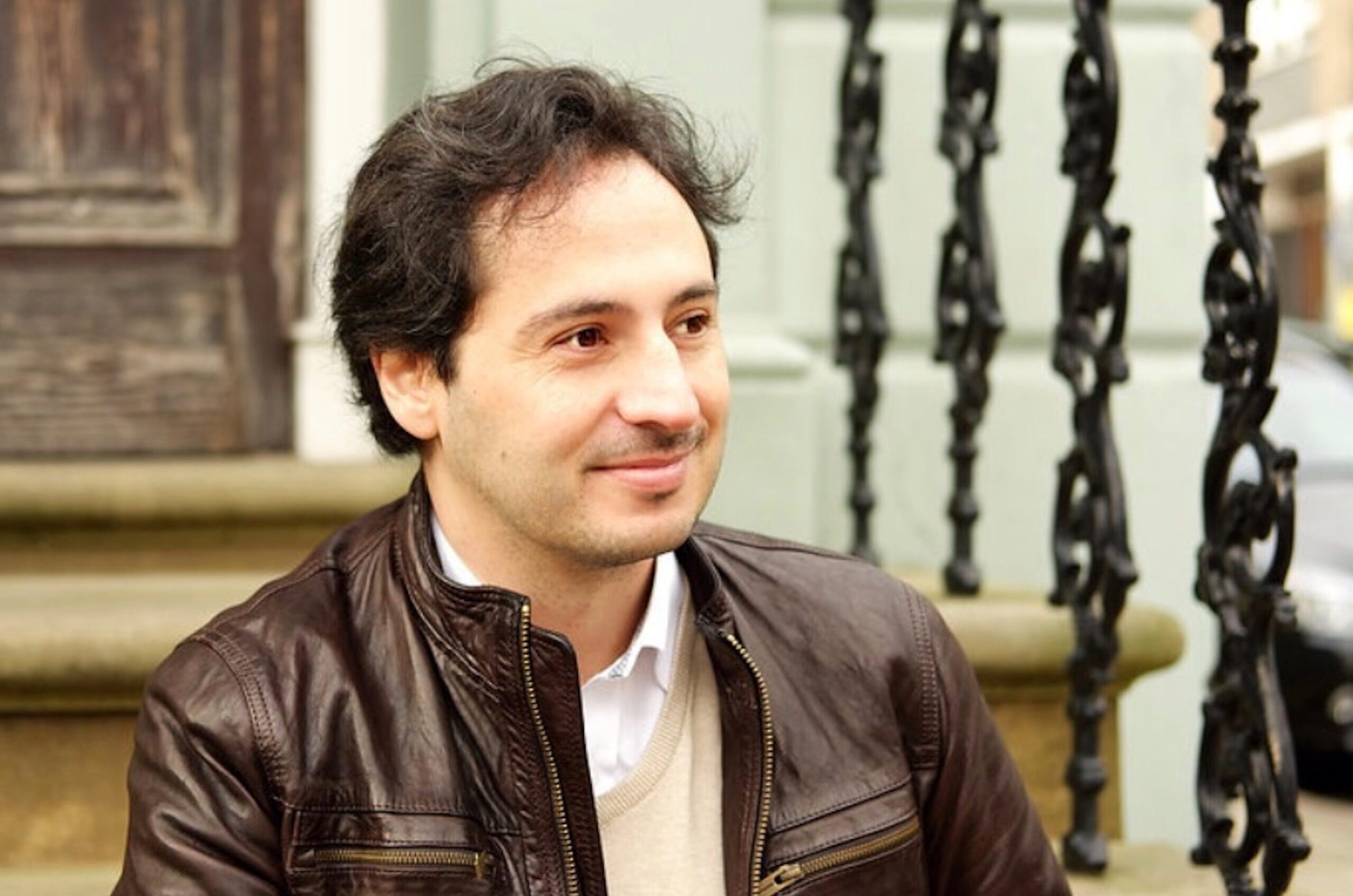FAMILY LAW: A WHOLE NEW WORLD?

When we look back in 30 to 50 years from now, we will look upon DDSA 2020 and the changes it has brought and not just find it odd that people had to prove their relationship had broken down, we will find it outrageous. When he said that there is nothing permanent except change, the Greek philosopher Heraclitus could very well have been referring to family law and the life of a family lawyer.
The history of family law in England and Wales paints a rich tapestry of enormous change. Since the earliest beginnings, when Henry VIII first moved jurisdiction for divorce away from the church and into law (for his own gain), family law has never stood still.
Change was truly seismic in the 1800s, when the emerging green shoots of the branches of family law we now know today emerged. What we now see as private and public children law sprouted from the introduction of the Custody of Infants Act 1839 and the Prevention of Cruelty to, and Protection of, Children Act 1889. The ability for ordinary people to divorce was introduced with the Matrimonial Causes Act 1857. The legal framework was established, paving the way for a continued evolution of legal change.
Emergence of family law
It is easy to see that we have come a long way since the 1800s when family law was emerging in Victorian Britain. Much of that legislation would be intolerable in today’s society; we judge it as a relic of history that is far detached from the modern world we now live in. The thought of husbands and wives facing different rules for whether they could divorce, or mothers only being able to have custody of a child until they are seven years of age, is almost unthinkable.
Yet, we must not forget that it is only 50 years ago, before the introduction of the Matrimonial Causes Act 1973 (MCA 1973), that divorce was something that required objective proof and financial consequences would flow from fault. It is only a little over 30 years ago, since the Children Act 1989, that presumptions about which parent the children should stay with after divorce were finally removed and it is only since the Family Law Act 1996 that victims of abuse were readily able to obtain protection from their abusers in the courts. In case law too, it was within this millennium that White v White [2000] was decided and which has subsequently shaped much of the financial remedy work that family lawyers undertake now. Much has been written about this more recent history in the evolution of family law; the links with changing attitudes to the role of women within society are clear. The push was very much towards achieving gender equality and recognising the importance of both familial roles of breadwinner and homemaker.
Altering the perception and experience of the family justice system
The most recent significant change in family law is of course the Divorce, Dissolution and Separation Act 2020 (DDSA 2020). Many herald it as the biggest change to divorce law since MCA 1973 and a change that will, in time, alter both the perception and the experience of how the family justice system deals with relationship breakdown. The true change of ‘no-fault divorce’ is unclear and perhaps yet to be felt; it is happening around us now. But be in no doubt that it is another seismic change for family law.
The evolution of divorce itself is arguably now complete; people are, with few exceptions, able to divorce at will in the same way that they can marry at will. When we look back in 30 to 50 years from now, we will look upon DDSA 2020 and the changes it has brought and not just find it odd that people had to prove their relationship had broken down, we will find it outrageous. In the same way we now look upon the changes brought about in the past, we may even find it peculiar that there was a requirement to have any sort of third-party approval at all to exit a relationship. Divorce is now, and will continue to become, a transactional legal process; a formality in much the same way as the original registration of the marriage or civil partnership was at the outset. The freedom this affords people, especially women when taken in the historical context, to be autonomous individuals is a triumph. We have come so far.
Evolution of family life and family law
Yet, this will not be the end of the journey for family law. There is of course more to family law than divorce. It has for a long time really been about what comes with divorce, ie the need to sort arrangements for children and finances. There are also other issues surrounding the creation of relationships and families and even how people interact with one another during or after a relationship. At a fundamental level, family law is about how family life is supported and regulated within society. The complexities of family life will not go away and they will continue to evolve, therefore as a result so will family law.
Much like the changes in the 1800s, there will likely be movements that demand further change across the spectrum of family law. The focus is for a time likely to remain on promoting gender equality, with attention turned to how financial matters are resolved when unmarried couples separate and, in particular, further exploration of how to address assets such as pensions. However, the link of providing gender equality between breadwinner and homemaker will start to fade, in the same way those traditional roles have faded in society. Family life just isn’t set up like it was in Victorian times.
The overriding focus of the welfare of the children will also continue to be at the forefront of future changes. Issues such as exposure to abuse, parental alienation and vicarious trauma will all need to be worked on to achieve the best outcomes for future generations.
There will be an increased reliance on child psychology to shape the law, providing the best child-focused solutions in all that the law aims to do. Indeed, it was this goal that was the key driver for no-fault divorce, ie to minimise conflict and protect the children.
Ending the blame game and focusing on welfare
It is, of course, still unknown whether no-fault divorce will have the desired effect, but the ending of the ‘blame game’ could, for many, mean a cleaner, more straightforward way to separate. In turn, as this becomes ever increasingly commonplace and people experience divorce and relationship breakdown in a different way, it may start to fundamentally shift attitudes in society to relationship breakdown and possibly even relationships themselves.
In tandem, there is likely to be the emergence of a new focus in family law on the welfare of adults, including helping them avoid the negative effects of relationship breakdown. Perhaps accelerated by the pandemic, the general well-being movement is now established in society. As a result, people will demand more from family law and the family justice system. Society will expect support from services that allow them to enter into relationships thoughtfully, create families in a way that suits their lives and exit relationships in a manner that doesn’t destroy their personal well-being or the well-being of their family. Family law and family lawyers will have to keep up.
We must look at this in the context of where we are: courts are overwhelmed, delays are rife, legal aid is on the brink of collapse and the majority of family law practitioners are stretched at best. We still live in a time where the family justice system sees people taking years to conclude disputes, spending eye-watering sums of money on legal costs, and the vast majority feeling ‘beaten by the system’ and in a worse place than where they started. Ask the majority of the public who have experienced the family justice system what they think of it and the answers will doubtless be revealing. There is still such a long way to go to get to the point where family law is in sync with family life.
Changing role of family lawyers
All of this poses a problem for family lawyers as it is not just family law that is changing, but the role of the family lawyer. Historically, family lawyers evolved from roots as general practitioners covering a wide range of legal matters for their loyal private clients. They were then a specialist branch of wider litigation teams, before being seen as a breed of lawyer in their own right. The majority of family lawyers are now specialist family lawyers and increasing numbers are specialists in a chosen area of family law. Yet, the contentious roots are all too often still there to be seen on the surface. Many family lawyers reading this will still assess how busy they are by the number of court hearings they have in the diary. They will use the language of an adversarial process. Even family law awards and directories still all too often celebrate reported court cases, where parties have no doubt expended huge amounts of time, money and energy to get to a decision. Even within the majority of out-of-court services (what was once called alternative dispute resolution, but is at least no longer seen as an alternative), the relationship breakdown process continues to be seen as one laden with conflict and dispute.
The argument of course goes that this is inherently the case when a relationship breaks down. Broadly, there are perhaps two reasons for this belief:
- relationship breakdown is often emotionally traumatic, which triggers an amygdala hijack in the brain of those experiencing it, meaning they cannot think beyond fight or flight which fuels the ‘dispute’; or
- even if people are functioning cognitively then it is perfectly rational to be in dispute as inevitably the two parties are in competition for the greater share of money, time with the children and so forth.
An adjustment in this perception could prompt the true change in the role of the family lawyer. Assisted by the concept of no-fault divorce, the well-being movement and the continued focus on child welfare, people are seeing relationship breakdown in new ways. It has expanded beyond law. Fundamentally, when people experience relationship breakdown they do so in four ways:
- physical separation;
- legal separation;
- emotional separation; and
- financial separation.
People want help with all four, even if each individual will have a greater focus on any one element at a given time. The emergence of the role of the divorce coach is one that highlights what society demands. They want a roadmap through the changes to their lives that come with exiting a romantic relationship, covering all angles rather than just purely legal. They want a holistic approach.
In time, this holistic approach will grow further. People may begin to have the support they need to assist them through all of the ways they experience relationship breakdown, ensuring the fight or flight thoughts are challenged. They may also start to move away from a competitive bargaining approach. Instead, greater awareness of the impact of conflict on themselves and on children will see them seek alternative routes to moving forward rather than pursuing a dispute.
As a result of this, society will not want family lawyers who tell them how to get the most money, the most time with their children or so forth. They will want family lawyers who see them and their family through the process in a way that protects everyone and sees them transition from one type of family unit to a different type as seamlessly, stress-free and cost-effectively as possible. They want a roadmap that doesn’t involve a fight.
If family lawyers continue to be seen as litigious creatures, who are out to maximise the outcome for their clients and potentially themselves, people will simply avoid them altogether. That is nothing new – increasing numbers of litigants in person have been slowly eating away at the role of family lawyers for years, as have many who simply never bother with the justice system at all. Yet, that slow ebb of erosion is potentially now going to speed up and we will see much larger chunks of the work family lawyers are used to doing being stripped away.
Providing a service of value
How then will family lawyers survive? Put simply, family lawyers will need to adapt. They need to provide a service of value and give people what they want and need.
Practice as we currently know it will become a reserve for those with exceptionally complex circumstances or where issues of abuse or personality disorder are present. The vast majority will seek help in different, more holistic ways. Family lawyers will need to work more closely with other professionals including divorce coaches, therapeutic services, financial advisers and so forth. The support for families experiencing change will become broader and the process will not be linear; clients will demand an ability to move between services and different professionals to suit their needs and the needs of their families. Family lawyers will need to arm themselves with new knowledge, outside of traditional legal practice, and build awareness on topics such as child development, child psychology and general psychology.
The traditional legal premise of acting in the best interests of your client will be blown apart. The simplified assessment of best interests being achieving the best financial outcome or the most time with the children will fall away. The interests of the children will overtake the interests of the client and, in any event, the need not to cause greater trauma to all parties will become paramount. This will likely be reconciled by adjusting who is the client. Family lawyers will likely see a greater need to assist both sides of a separating couple. The cost savings, removal of competitive bargaining and general efficiency experienced by clients will see them demand this. Mediation will continue to evolve to assist people who get stuck, but other services that address the legal formalities for a couple collectively will accelerate in growth.
Technology will also be harnessed further to offer efficient and flexible services. Collaboration with other professionals will become the norm and new business structures may well emerge, initially with those from other disciplines entering family law set-ups. This is already starting.
There is much to fear for family lawyers. Careful consideration will need to be given to how the new family law world will operate and who, if anyone, will regulate this work to ensure it is done effectively and ethically. It will unlikely ever be a pure legal system ever again. There could be a move away from regulated practice for many. There will be much to ponder for the Solicitors Regulation Authority in breaking down the barriers of thinking of family law as a traditionally adversarial and litigious area of law and retaining the vital work in the parameters of the justice system.
Yet, there is also much to be excited about. Family lawyers are well placed to assist in bringing together the collection of wider professionals needed to achieve the best holistic practice. Many family lawyers have an enormous toolkit of skills to do the work that is needed to assist families in navigating the change that relationship breakdown brings. There is also the greatest asset of all: the fact that so many family lawyers want this. They want to change the system and they want to promote the welfare of their clients and their families. They want to find better ways of helping people through the difficult times. They want to help society by minimising the negative effects of relationship breakdown and the processes of the family justice system. Put simply, they want to change the world.
We can do it, but to corrupt a quote from another famous Greek philosopher, ‘Let the family lawyer who would move the world, first move themselves’. We must not rest on our laurels while we rightly celebrate the advent of no-fault divorce. There is still much to be done and a long way to go.
Cases Referenced: White v White [2000] UKHL 54
Citation reference:
Paul Linsell, ‘In practice: A whole new world?’, (September 2022 #216) Family Law Journal, https://www.lawjournals.co.uk/2022/08/05/family-law-journal/in-practice-a-whole-new-world/
This article was originally posted in Family Law Journal, September 2022 #216 and shared with permission.
Author: Paul Linsell, Partner and Head of Family at Boyes Turner
E: PLinsell@boyesturner.com



